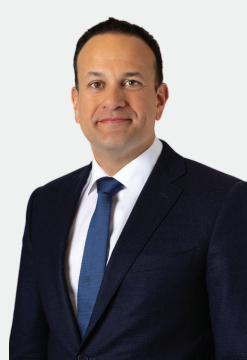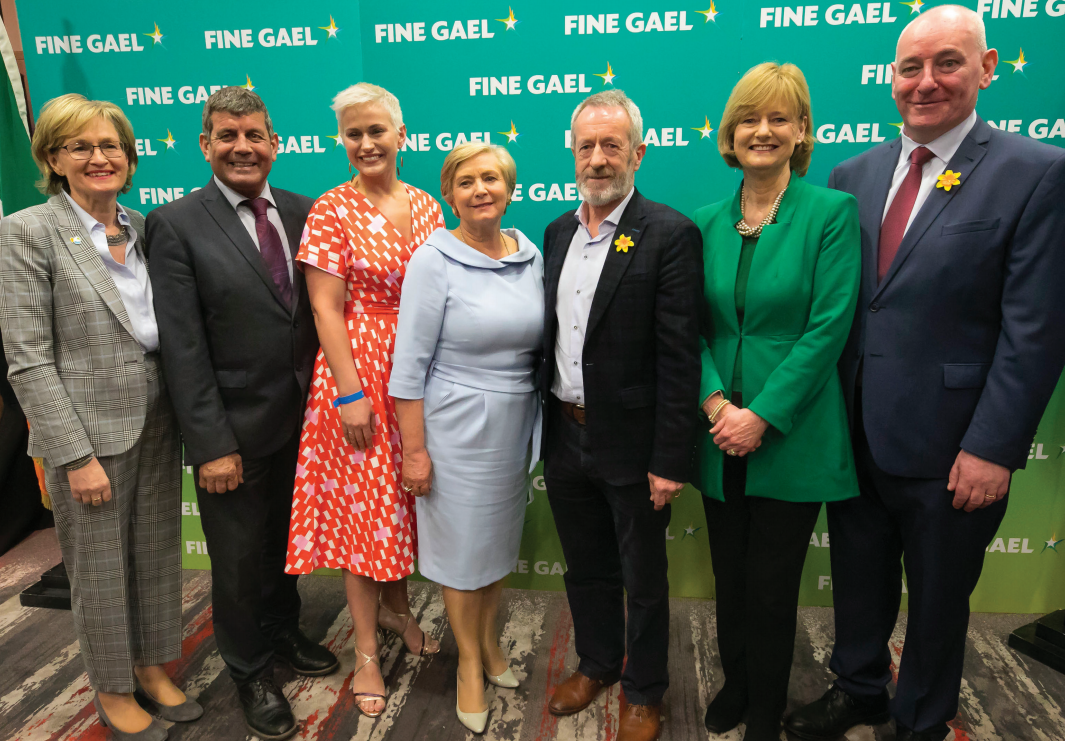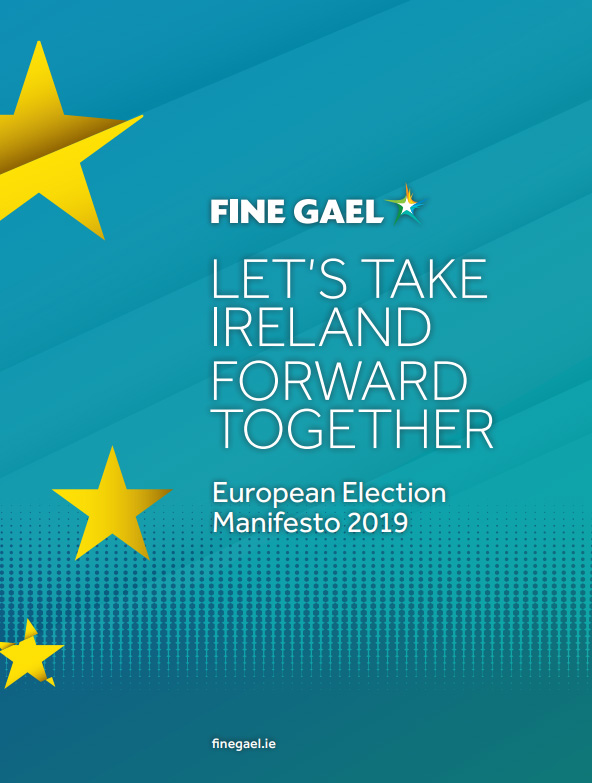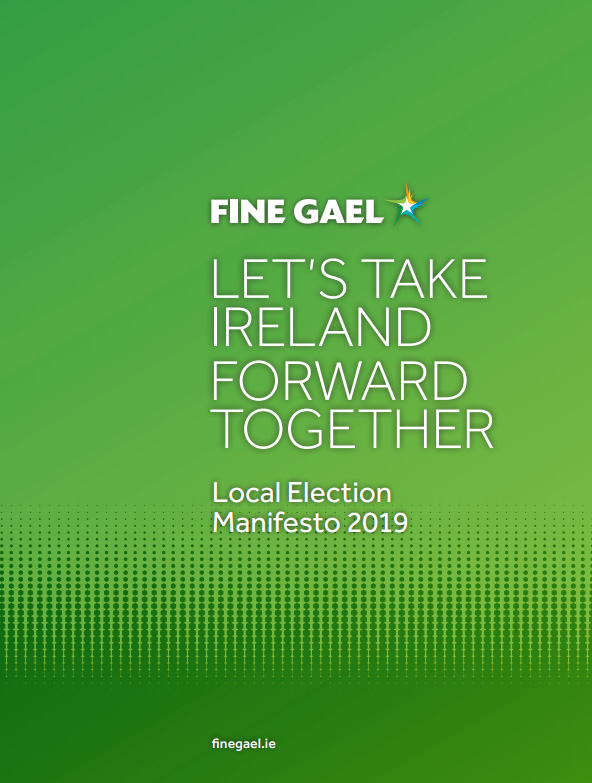The public consultations on the Citizens’ Dialogues on the future of Europe showed that Irish people are concerned by the apparent erosion of the rule of law in some EU Member States. If the EU is to promote our fundamental principles of democracy, freedom, equality and respect for human rights, we must ensure we uphold these principles at home. Fine Gael and our MEPs are fully committed to ensuring EU laws are enforced and the key principles of EU membership are upheld.
Fine Gael MEPs will:
- Re-affirm Fine Gael’s values of integrity and openness in our dealings with colleagues in the European Parliament.
- Stand up for the rights of LGBT+ and other groups that face continued discrimination within and outside the EU.
- Support the re-establishment in the next parliament of the LGBTI Intergroup that coordinates the work of MEPs in this area.
- Work to promote tolerance for ethnic and religious minorities who face discrimination and support freedom of religion or belief within and outside the EU
SECURITY AND DEFENCE POLICY
Today’s criminals and terrorists are operating across borders more than ever before. Our police, security and intelligence services across Europe must work collaboratively and have access to the most up-to-date technology in order to tackle criminals and terrorists. In the current term, Fine Gael MEPs supported the EU-wide Passenger Name Record (PNR) system which empowers authorities to better track terrorists and serious criminals.
Fine Gael MEPs will:
- Work to further connect European IT databases in the areas of freedom, security and justice, in a balanced and proportionate way that respects people’s right to privacy.
- Support a strengthened EU cyber security strategy, and as part of that strategy a cyber security agency if it is aligned with Ireland’s national interests.
- Take a lead on counteracting disinformation online, especially in ensuring the integrity of the European elections. We will support the implementation of the recently agreed EU Action Plan on disinformation, which seeks to create a consolidated approach across Member States and establish a Rapid Alert System for national points of contact.
- Support increased cooperation of intelligence services to allow for a better exchange of intelligence on terrorists and potential offenders, whether they are at home or abroad, who may represent a security risk for our citizens.
- Defend the EU Passenger Name Record (PNR) system and ensure it is fully implemented by Member States to strengthen security and protect our citizens, while also preserving our freedoms.
Fine Gael is opposed to the creation of an EU army. We support greater cooperation with other MEPs and Member States on security and defence matters to ensure that all our citizens are protected from new global threats such as terrorism, cyber threats and human trafficking. We do not believe that Ireland should stand aside from engaging in international affairs due to our policy of military neutrality. Rather, through active participation we can make an effective contribution to global peace, security and development, whether that is through the EU, the UN or Ireland’s own bilateral engagement.
As part of our Global Ireland programme, we believe it is right to provide assistance in certain situations and assignments. The EU’s Common Security and Defence Policy is about promoting peace, democracy and the rule of law and our participation does not undermine our military neutrality. Our active participation in such initiatives helps us to build on our strong reputation for peacekeeping missions and make an impact internationally in keeping with our Global Ireland ambitions.
Fine Gael MEPs will:
- Support Ireland’s continued participation in PESCO, This provides a mechanism for developing capabilities that can assist the Defence Forces when undertaking UN-mandated peacekeeping operations and carrying out operations at home.
- Support efforts for increased collaboration and coordination so that EU Member States increase their contributions to UN peacekeeping as endorsed by the EU-UN Strategic Priorities on Peace Operations and Crisis Management (2019-2021).
- Work with European Parliament colleagues to develop an understanding of Ireland’s position on defence.
MIGRATION AND ASYLUM
Fine Gael believes that immigration from within the EU and from outside the EU is good for Ireland. Immigration has helped enrich our society, drive economic growth and staff our public services. We also appreciate that Member States need to manage migration in a balanced way to protect EU borders.
From the outset of the migration crisis in Europe, Ireland has sought to play an active role in protecting the most vulnerable and we voluntarily pledged to accept a total of 4,000 people into the State.
Fine Gael believes we should do all in our power to ensure that Operation Sophia’s search and rescue and humanitarian mandate is extended. We have real concerns about its change in 20 Fine Gael European Election Manifesto 2019 mandate and the danger that poses to the lives of vulnerable people. The value of Operation Sophia goes far beyond its formal mandate; with more than 45,000 people rescued with the help of members of the Irish Defence Forces, its value in protecting human life is immeasurable. It is an example of Ireland’s and the EU’s commitment to disrupting criminal networks, tackling the scourge of people-trafficking and protecting the lives of vulnerable migrants at sea.
Part of the solution to the ongoing migration issues lies in a renewed EU-Africa relationship, described in the next section. Ireland will continue to finance measures to address the root causes of irregular migration through humanitarian and developmental programmes in developing countries.
Fine Gael MEPs will:
- Support efforts for a comprehensive approach to migration, based on a systematic, transparent and fair system, rather than the current more ad hoc approach.
- Work to reform the Common European Asylum System.
- Seek to re-establish the search and rescue and humanitarian mandate of Operation Sophia, given Ireland’s central role in recent years. Recognising the complexity of migration as a political issue in Europe, we will work to build consensus on a way forward.
MAKING AN IMPACT GLOBALLY
As set out in Global Ireland 2025, Ireland will seek to influence the global agenda through our membership of the EU. The EU is an important actor on the world stage and Ireland’s voice is amplified within EU structures. In the European Parliament, delegations provide a forum for MEPs to make links with parliamentarians and representatives from across the world. This is an opportunity to promote human rights and democratic values beyond EU borders.
In the past few years, the Irish Government has increased Ireland’s contribution to the EU’s Emergency Trust Fund for Africa from €3 million to €6 million to €15 million today. This fund addresses the root causes of destabilisation, forced displacement and irregular migration in Africa and helps those communities most affected by, but least equipped to tackle, the effects of climate change.
Fine Gael believes a more intensive and meaningful EU-Africa partnership is required if we are to deal effectively with our shared challenges. We want to move beyond our traditional focus on aid towards building new multi-faceted partnerships with a young, fast-growing African continent, encompassing trade, security and education. This relationship must be one based on mutual respect and which, through partnership, helps the two continents deal with the multiple challenges of climate change, the economy, food security, energy security, water security, migration, corruption, and regional conflict.
Ireland’s new policy for international development, A Better World, outlines how we will help those furthest behind to overcome the challenges they face, including climate change. We spend tens of millions of euro each year on climate action internationally and that work will be strengthened as part of A Better World.
Fine Gael MEPs will:
- Work towards a more meaningful and multi-faceted EU-Africa partnership.
- Seek to establish a new political structure to facilitate much closer political cooperation and two-way investment between Africa and the EU, reflecting the breadth of challenges and opportunities - such as rapid population growth – we will face over the coming decades.
- Support the implementation of Ireland’s new policy on development aid, A Better World, in conjunction with the European Consensus on Development, which aligns our development policy with the 2030 Agenda for Sustainable Development.
- Advance the EU Global Strategy, which sets out how we can contribute to a more peaceful, equal and sustainable world.
- Promote respect for human rights in relations with countries outside the EU.
- Play an active role in EU efforts to provide humanitarian assistance in crisis situations.
- Support further accession to the EU for countries that meet the necessary criteria in line with EU values. We recognise the importance of accession for many countries neighbouring the EU, especially given Ireland’s own positive experience of EU membership.
- Oppose any proposals for Qualified Majority Voting on foreign policy.
- Work with fellow MEPs and other Member States towards the creation of a two-state solution as part of a lasting settlement in the Middle East.
- Support the EU strategic approach to international cultural relations and the new ‘framework for action’ to ensure the role of culture informs all decision-making. The EU can strengthen its effectiveness and the impact of its foreign policy by integrating international cultural relations.





